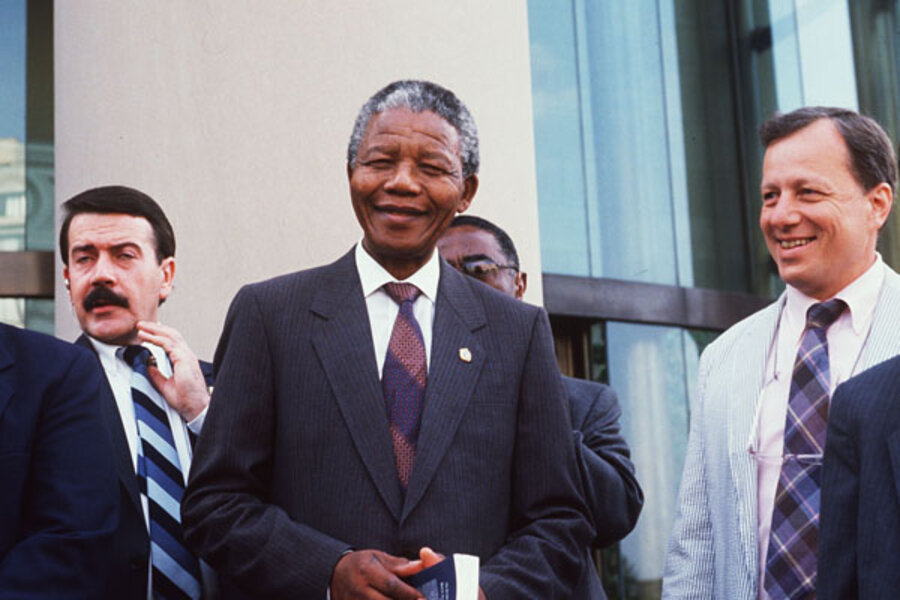When Mandela became the president of South Africa in 1994, one of the most daunting tasks before him was how to deal with those who had carried out apartheid's most heinous crimes. Rather than advocate harsh justice, or retribution and punishment however, he worked towards national reconciliation, establishing a commission to take testimony and grant amnesty to those who confessed to politically-motivated violence. As Monitor reporter Judith Matloff wrote, Mandela sought to "avoid any vengeful witch hunts for the three decades of human rights abuses during apartheid."
A new body, the Truth and Reconciliation Commission, is entrusted with excavating the thousands of stories of torture and murder so South Africans can put the past to rest. Those who confess and prove their actions were politically motivated will be given amnesty.
It is a novel approach for a country where political hatreds have been traditionally settled with the gun or machete.
"I personally have forgiven those who ... tried to take my life," [Justice Minister Dullah] Omar says. "The healing process means that we South Africans should come clean ... but be generous."
The Commission would eventually strike close to home for Mandela when his ex-wife, former anti-apartheid activist Winnie Madikizela-Mandela, appeared before the panel to answer questions about her involvement in a string of murders of supposed turncoats within the anti-apartheid movement during the 1980s. In November 1997, the Monitor reported,
This week in Johannesburg, the woman whose fans still call her "the mother of the nation" will have to play to a much tougher hometown crowd. Hundreds of witnesses, victims, and members of the public, together with innumerable hordes of lawyers and reporters, will pack into the long, airless hall of the Johannesburg Institute for Social Services.
There, for the next five days, South Africa's Truth and Reconciliation Commission ... will grill Mrs. Madikizela-Mandela over a string of allegations including kidnapping, battery, and involvement in at least 13 murders. About 30 witnesses, including senior members of her own African National Congress (ANC), are expected to implicate the divorced wife of President Nelson Mandela in a wave of killings and assaults carried out by members of the Mandela United Football Club. The club, which served as de facto bodyguards, was a group of youths who lived at her Soweto mansion in the late 1980s.
The commission eventually heard more than 7,000 testimonies before completing its work in July 1998.








